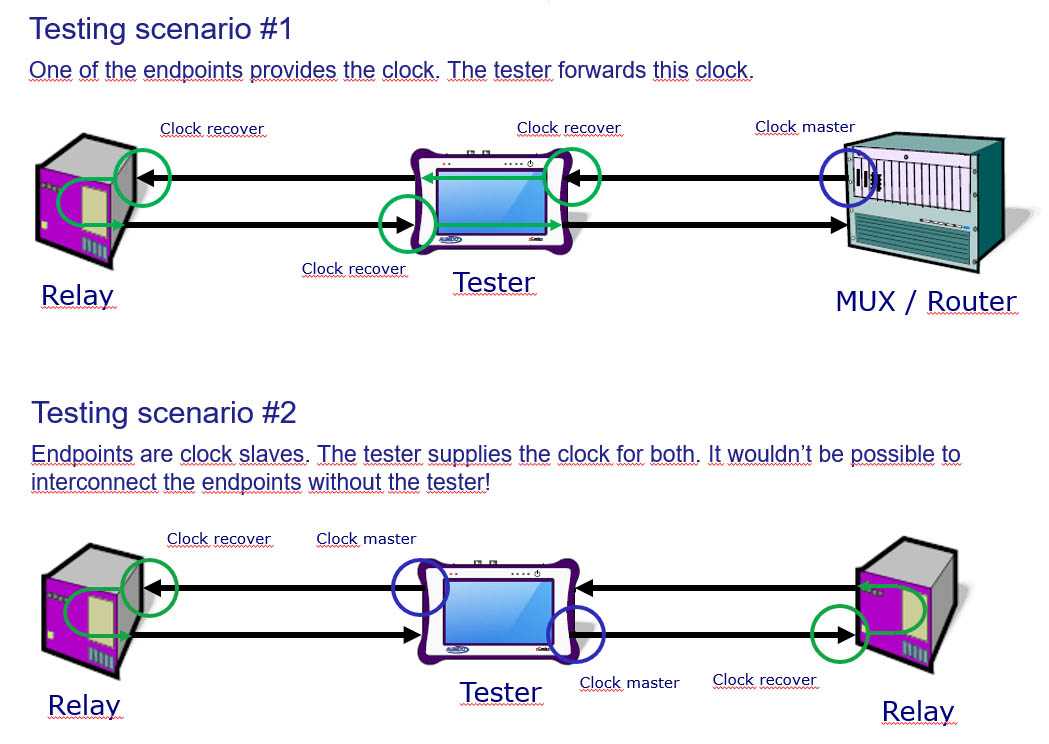Impairment over C.3794
xGenius and Zeus can simulate TDM network dynamics by generating impairments on a line that controls the C37.94 protection protocol. It is essential to test the impact these errors may cause in the lab or the field.
MIAMI 10.01.23
Protection schemes, such as C37.94, have the objective of keeping the Power System stable and isolated. For correct function the control of latency, latency variations and asymmetry is fundamental.
Zeus and xGenius equipped with C37.94 interfaces and synchronized by GPS, measure all key parameters including One‐Way Delay (OWD) by means of two units (in the picture A and B) at the ends of the path to be qualified.

Fig 1. Clock forwarding in pass-through mode.
Event Insertion
Sometimes it is necessary to insert events (defects or anomalies) in the generated signal to stress the DUT/SUT. The tester implements extended event insertion capabilities.
Delay Insertion
An equipment configured in E1 / T1 or C37.94 bidirectional pass-through mode or in loopback mode has the ability to generate a custom latency. In loopback mode the delay is added to the received traffic one of the ports compatible with the current operation mode. If the operation mode is E1 / T1 or C37.94 pass-through, then the delay is added at the input of any of the transmission directions.

Fig 2. xGenius and Zeus are the preferred testers for C37.94 verification.
Download the complete course:
https://www.albedotelecom.com/src/lib/TC-C3794-Impairment-Zeus.pptx


